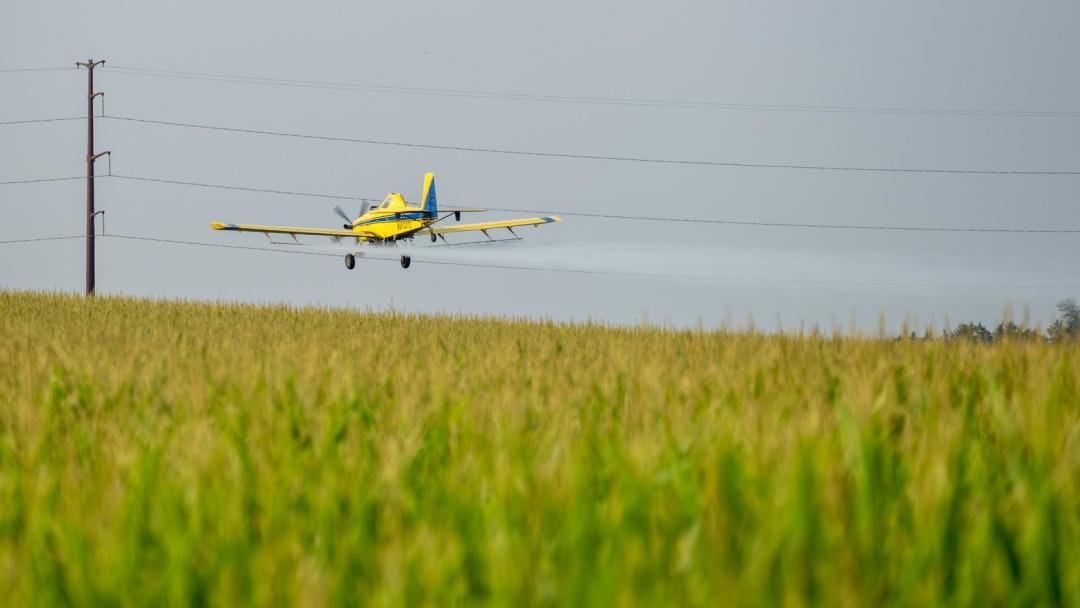
CERA tackles research on pesticide use and community protection
The Newkirk Center for Science and Society and the Center for Land, Environment, and Natural Resources (CLEANR) at UC Irvine’s School of Law have launched a new program, the Community Environmental Research Accelerator (CERA). In its first year, CERA’s focus will be to accelerate research on pesticide use and exposure and community and farmworker protection.
CLEANR partners with researchers, agencies, and community leaders to address dynamics that result in health disparities among disadvantaged communities – in California and across the country. It works with community partners and coalitions on diverse issues such as pesticide use and exposure, infrastructure equity, air quality, land use planning, and climate resilience. Without exception, each organization faces a common challenge: scientific research that is critical to their health and wellbeing yet underfunded, incomplete, or ignored. This dynamic is referred to as “undone science.” Undone science – from human-scale environmental monitoring to cumulative risk to health impact assessment – is a barrier as well as an opportunity for social movements, including movements for environmental, climate, and social justice.
“Over time, undone science becomes entrenched and distorts our ability to resolve complex policy problems,” said Gregg Macey, director of CLEANR. He designed CERA, which is funded through a grant from the Newkirk Center – to reshape this dynamic.
“Given the scale of undone science in areas of community concern, and the demand to translate research into policy, CERA breaks down silos that continue to plague university research and administration,” he said. “For example, CERA builds on the core strengths of CLEANR and the Newkirk Center, including their shared focus on advancing public understanding of science; expertise in community-based research; experience organizing, convening, and facilitating policy networks; and ties to environmental organizations, government, media, and the scientific community.”
This year, CERA partners with the Environmental Working Group (EWG). EWG is a nonprofit, non-partisan organization that empowers people to live healthier lives in a healthier environment. Through research, advocacy, and unique education tools, EWG drives consumer choice and civic action. In 2022, EWG released a report and map showing that more than 32 million pounds of toxic pesticides, including many linked to cancer and respiratory and developmental problems, were sprayed in Ventura County alone between 2015 and 2020.
“Having collaborated with EWG on a project to identify links between pesticide use and violations of civil rights law, I am thrilled to work more closely with their leadership and research teams on the science that informs this critical area of community protection,” Macey said.
“The health effects of pesticides are typically assessed by scientists and regulators one chemical at a time, but in the real world, that’s not how pesticides are used or how people are exposed to them. What’s more, there are disturbing disparities in who is repeatedly exposed to multiple pesticides, as our Ventura County investigation revealed,” said EWG toxicologist Alexis Temkin.
“I’m really excited to kick off this partnership between the Newkirk Center and CLEANR at UCI Law,” said Professor Steve Allison, director of the Newkirk Center. “Our joint venture is a great opportunity to start new research that is desperately needed and furthers the public good. Understanding pesticide use and farmworker health is one of these key needs, and I’m thrilled that we will be collaborating with EWG to tackle this important set of issues.”
EWG President and long-time California resident Ken Cook said that big agriculture is exposing farmworkers, families and school children across California to a constant mix of dangerous pesticides. “EWG’s research demonstrates why state and federal policymakers must act to better safeguard workers and residents from the dangers posed by the widespread use of toxic pesticides across the state.”
The partnership includes three goals, each designed to mirror the core functions of CERA:
- identify and address regulatory gaps and challenges that are linked to the area of undone science;
- consolidate existing attempts to address the area of undone science and related best practices among university, non-profit, and community science networks; and
- complete joint research that furthers existing attempts to gather, transform, and analyze relevant data – either through investigative reporting, geospatial analysis, public records requests, community science, participation in agency-sanctioned processes, or other means.
Each year, CERA’s projects will culminate in a universitywide conference, held at UCI, where research teams present findings, encourage new research across campus and beyond, frame its importance to legal innovation and policy change, and encourage foundations to prioritize the research as part of their annual funding priorities and special projects.
CLEANR and the Newkirk Center hope the program will serve as a model for other universities.
“CERA brings resources, convening power, legal and scientific research, and the attention of government, community organizations, science and media, and foundations to bear to inform regulation and community efforts to protect themselves,” Macey said. “Each year, CERA will communicate a sense of urgency regarding policy-relevant research to agency staff, legislators, investigative journalists, university and community science researchers, donors and foundations, and the public. We encourage other universities to follow the example that CERA will set.”
Banner image by Joseph Gage